A Commentary on Isaiah, Part 1: The Sinful Nation
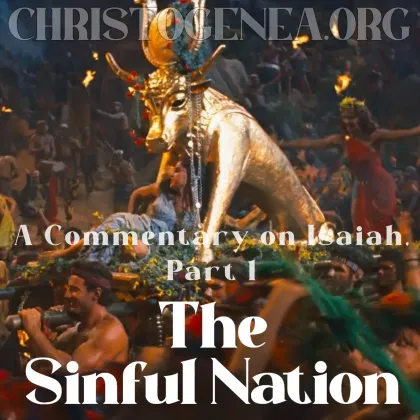
Here we are going to venture a commentary on the book of the prophet Isaiah. While it seems as though it may be a long journey, and I am persuaded that it may take as long as a year and a half to complete, the Genesis commentary had taken that long to complete. I can only pray that it is worth the time and effort in the end. As we discussed here last week, I am still pondering some supplementary material for the Genesis commentary, so I may occasionally revert to that in the near future. The Book of Isaiah is nearly as long as the Book of Genesis, about 37,000 words in the King James Version where Genesis has just over 38,000, and the dives into ancient history and some elements of the language may be nearly as deep. However we also hope to elucidate its close relationship to the Gospel of Christ and the epistles of His apostles in ways beyond those we have already discussed in our New Testament commentaries.
Here we are going to venture a commentary on the book of the prophet Isaiah. While it seems as though it may be a long journey, and I am persuaded that it may take as long as a year and a half to complete, the Genesis commentary had taken that long to complete. I can only pray that it is worth the time and effort in the end. As we discussed here last week, I am still pondering some supplementary material for the Genesis commentary, so I may occasionally revert to that in the near future. The Book of Isaiah is nearly as long as the Book of Genesis, about 37,000 words in the King James Version where Genesis has just over 38,000, and the dives into ancient history and some elements of the language may be nearly as deep. However we also hope to elucidate its close relationship to the Gospel of Christ and the epistles of His apostles in ways beyond those we have already discussed in our New Testament commentaries.
A Commentary on Isaiah, Part 1: The Sinful Nation
The prophet Isaiah describes himself as the son of Amoz, and little more can be known about him with any absolute certainty, aside from the apparent fact that he was a man of Judah. Being a man of Judah, he could have been of the tribe of Judah or of Levi, or perhaps even of Benjamin, and the only indication is found in circumstantial evidence later in his writing. There it is also evident that Isaiah had been married with children, as he recorded in chapter 7 that he had been told to go to meet Ahaz the king, and to bring “Shearjashub thy son” along with him. If this were the only reference to a son, we may think the Hebrew term בן or ben (# 1121), which is literally a son, was being used metaphorically, as it is used on many occasions. But in the subsequent text there is another indication that he did indeed have a wife and children, and very much in the same fashion that the prophet Hosea had children – as an example to the people for whom he had prophesied.

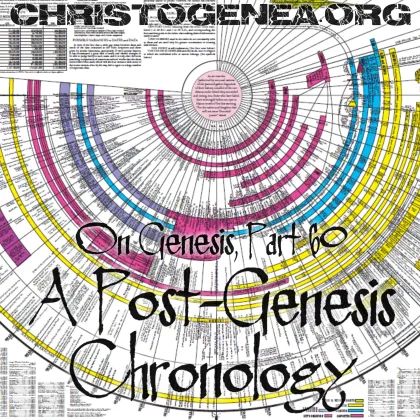
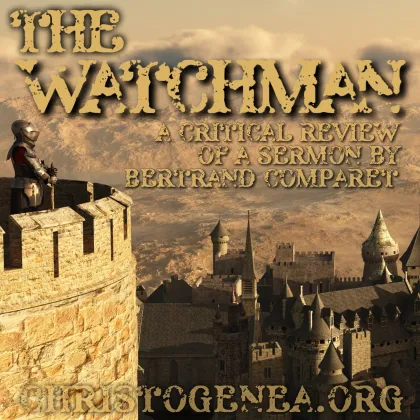
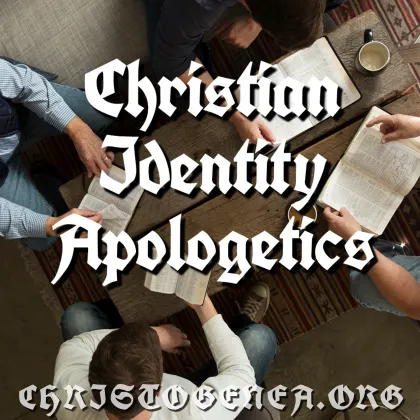
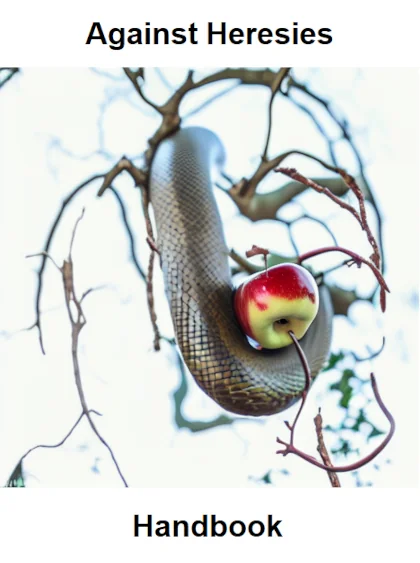




 Please click here for our mailing list sign-up page.
Please click here for our mailing list sign-up page.








Recent comments